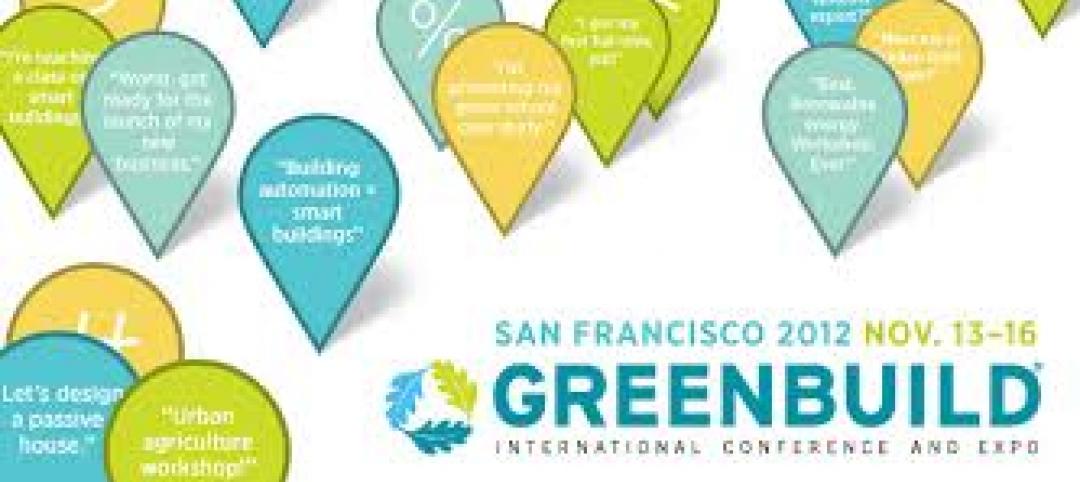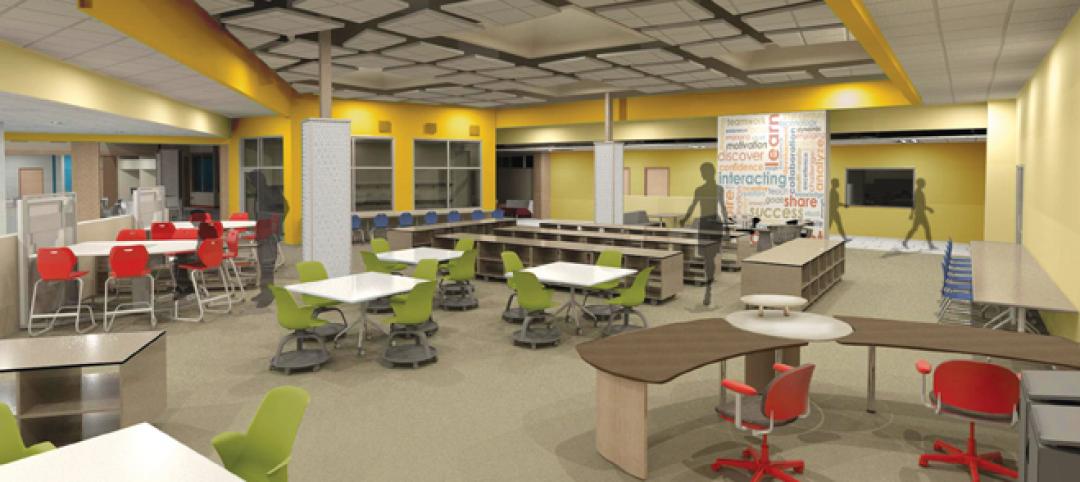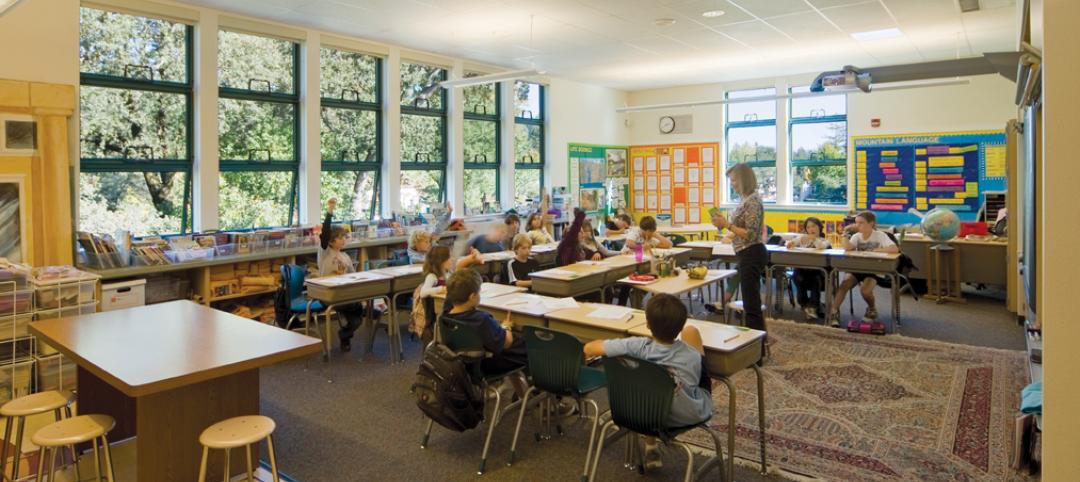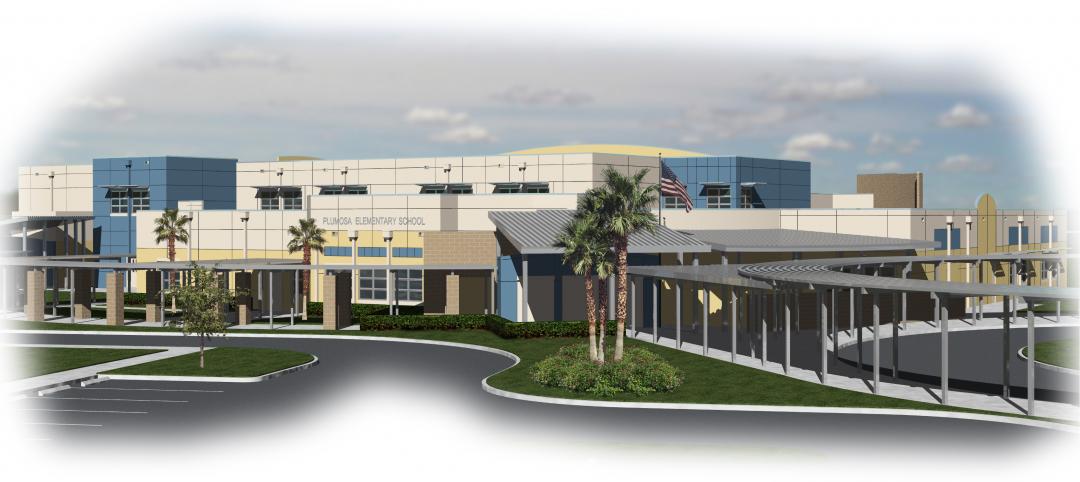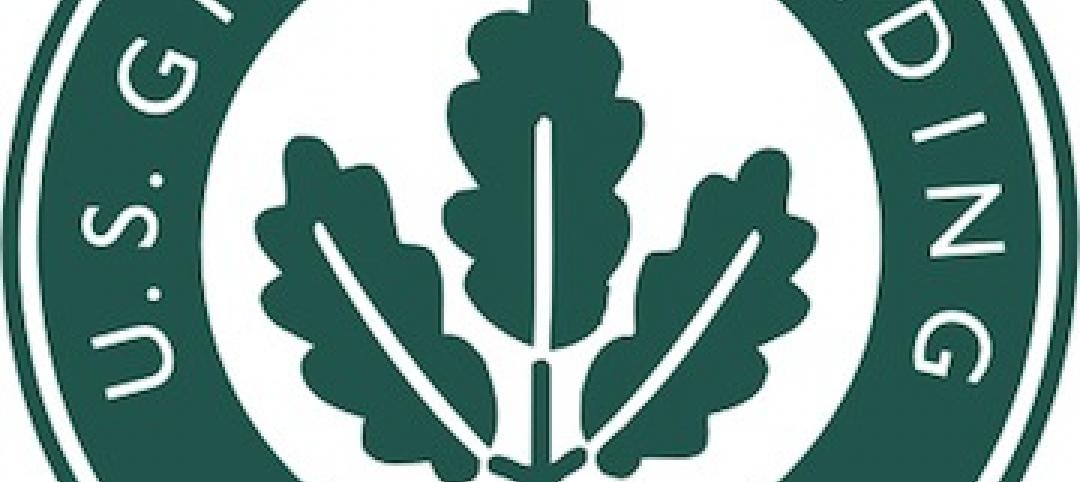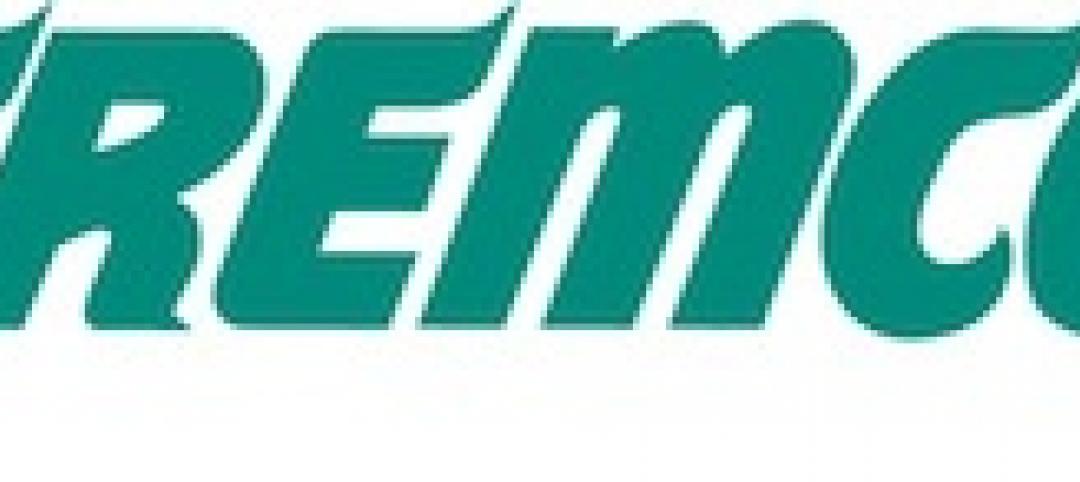One World Trade Center has officially become one of the largest buildings in the world to receive LEED Gold certification, and is the tallest LEED certified building in the Western Hemisphere.
But, as Curbed New York reports, this certification did not come without its difficulties. When Hurricane Sandy went rumbling through New York City almost four years ago, nine fuel cells, purchased for $10.6 million and which were supposed to help heat and cool the building, were among the $32 billion of total damage the city faced. As hundreds of gallons of water flooded the One World Trade Center basement and irreparably damaged the fuel cells, it seemed as though the hopes for LEED Gold had been washed away.
But the 1,776-foot-tall Skidmore, Owings & Merrill-designed building is nothing if not resilient. Thanks to a bevy of sustainable features incorporated into the construction, design, and daily operation of the tower, it managed to achieve LEED Gold certification all the same.
One World Trade Center was built using over 40% post-industrial recycled content, uses a design that allows for over 90% of office areas to receive natural light, and has a glass façade with a special coating meant to block excessive heat from ultra-violet rays. The structure also captures 100 percent of its stormwater runoff on-site to maximize water efficiency.
One World Trade Center joins other skyscrapers such as Shanghai Tower (LEED Platinum), Taipei 101 (LEED Platinum), and Kingkey 100 Tower (LEED Gold) as some of the tallest LEED certified buildings in the world.
Related Stories
| Sep 26, 2012
EDITORIAL OPPORTUNITY – BD+C Greenbuild 2012 Issue
Your firm is invited to contribute to this special issue, which will be distributed at Greenbuild San Francisco, Nov. 14-16, 2012.
| Sep 11, 2012
RTKL appoints Lance Hosey as Chief Sustainability Officer and Senior Vice President
Author and authority on green design to spearhead RTKL Performance-driven DesignSM initiative.
| Sep 7, 2012
7 Do's and Don'ts for PV roof rack installation
As PVs grow in popularity, nearly half of all installations require roof rack systems. Our expert tells how to do the job right and protect your client’s roof.
| Sep 7, 2012
Net-zero energy pioneers on the el-hi frontier
Getting to net-zero is not easy, but the promise of eliminating energy bills and using state-of-the-art technology as a learning lab can make a compelling case to reach for net-zero.
| Sep 7, 2012
The keys to success in the K-12 school market
When educators and school administrators describe their vision for new K-12 school buildings as ‘21st-century learning spaces,’ they’re not exaggerating. Many new schools are truly different in concept from their counterparts of only a few years ago.
| Aug 2, 2012
BD+C University: PVC Single-Plies as Sustainable Roofing Systems
You can earn 1.0 AIA credit + HSW + SD by taking this course.
| Jul 2, 2012
Plumosa School of the Arts earns LEED Gold
Education project dedicated to teaching sustainability in the classroom.
| Jun 22, 2012
USGBC Joins Six Major Organizations at Rio+20 to Launch the Global Initiative on Urban Resilience
Global initiative is designed to spur building and infrastructure development, create new investment opportunities, and foster community action around the world
| Jun 19, 2012
Armstrong Issues Environmental Product Declarations On Nine Popular Ceiling and Steel Suspension Systems
Transparent new documentation allows end users to make more informed decisions when selecting ceilings for projects
| Jun 18, 2012
Tremco Commercial Sealants & Waterproofing Unveils Sustainable Building Solutions Test Facility
State-of-the-art facility provides a controlled testing environment of air and moisture infiltration/exfiltration in air barrier systems and building enclosures



